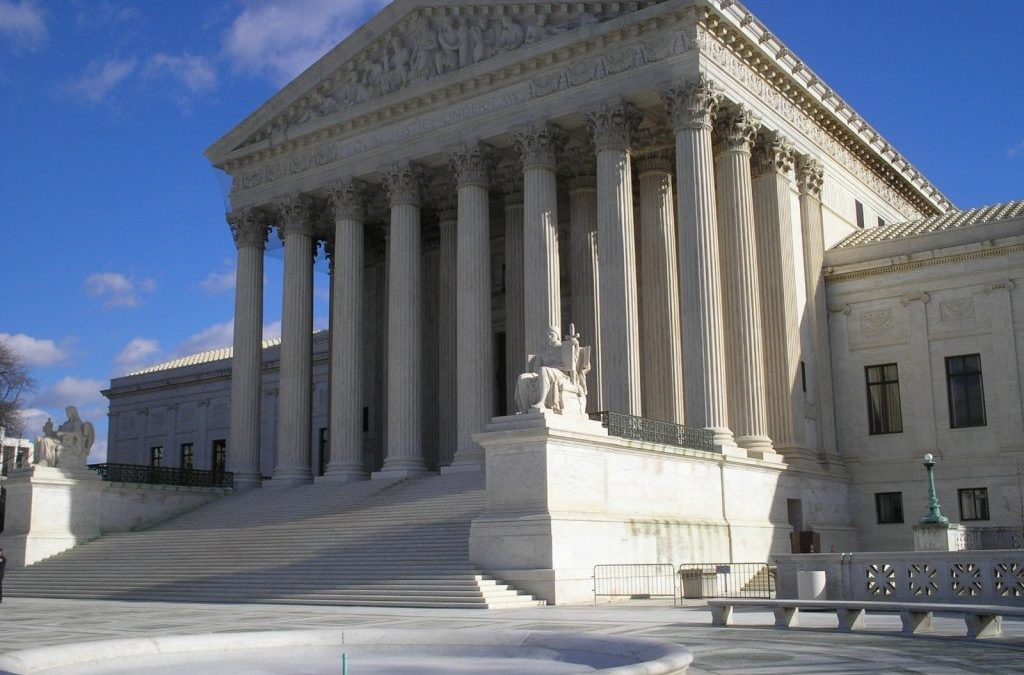Following the United States Supreme Court’s decision in Obergefell–granting same-sex couples the constitutional right to marry—a related question remained: would gender identity and/or sexual orientation later receive protection from discrimination in employment under the Civil Rights Act?
On June 15, 2020, in a 6-3 opinion authored by recently appointed Justice Neil M. Gorsuch, the Court answered that question and found that Title VII of the Civil Rights Act of 1964 does prohibit an employer from firing an employee merely for being gay or transgender.
Bostock v. Clayton County emerged from three cases—one each from the Second Circuit, Sixth Circuit, and Eleventh Circuit, respectively. Each case involved an employer who fired a long-time employee shortly after the employee revealed they were homosexual or transgender. Each plaintiff alleged that there was no other reason for their termination beyond their homosexuality or transgender status.
At issue in each case was a claim of unlawful discrimination on the basis of sex under Title VII of the Civil Rights Act of 1964.
Title VII of the Civil Rights Act of 1964 was originally drafted to outlaw discrimination in the workplace on the basis of race, color, religion, sex, or national origin. Because “[a]n employer who fires an individual for being homosexual or transgender fires that person for traits or actions it would not have questioned in members of a different sex,” Justice Gorsuch reasoned, “[s]ex plays a necessary and undisguisable role in the decision, exactly what Title VII forbids.”
The analysis used by Justice Gorsuch in reaching the majority opinion was largely textualist. Namely, Justice Gorsuch analyzed the definitions of the word “sex”, “discriminate,” and “individual,” and found that all of those words would have been interpreted in essentially the same way in 1964 as they are today.
Justice Gorsuch acknowledged that the adopters of the Civil Rights Act might not have anticipated that their work would lead to the Court’s result in Bostock—but that the full range of the Act’s prohibitions had only become better known over the years. Examples of latent decisions stemming from Title VII include the ban on discrimination on the basis of motherhood and the ban on sexual harassment of male employees.
In summary, the majority of the Court opined that:
-
- It is irrelevant what an employer might call or label its discriminatory practice.
- A plaintiff’s sex need not be the sole or primary cause of the employer’s adverse action.
- Finally, an employer cannot escape liability by demonstrating that it treats males and females comparably as groups.
“To refuse enforcement [for homosexual and transgender individuals]…because the parties before [the Court] happened to be unpopular at the time of the law’s passage would not only require [the Court] to abandon [their] role as interpreters of statutes; it would tilt the scales of justice in favor of the strong or popular and neglect the promise that all persons are entitled to the benefit of the law’s terms.”
Here, the broad statutory language of Title VII prevailed, and the Court’s decision was a “necessary consequence” to that legislative choice: “an employer who fires an individual merely for being gay or transgender defies the law.”
For employers, both public and private, you should be aware of this change and contact employment counsel to work on modifying your policies and practices, such as anti-discrimination policies, handbook guidelines that address anti-discrimination, and any training provided through human resources. Running afoul of the updated law will expose violators—knowing and unknowing alike—to civil liability.
For employees, if this updated law applies to you, you have legal rights to pursue a claim and should contact counsel to pursue your available remedies.
RELATED POSTS:

Daniel is known for giving complete attention to the needs of his clients and will always go the extra mile to ensure that they receive the best possible outcome in their representation. In addition to his extensive experience in automobile collision claims, homeowners’ claims, fire and casualty, premises liability, and general civil litigation, including experience in intellectual property and creditor’s rights litigation, Daniel is involved with the Knoxville Bar Association, Tennessee Bar Association, the Defense Research Institute, and the Tennessee Defense Lawyer’s Association.





